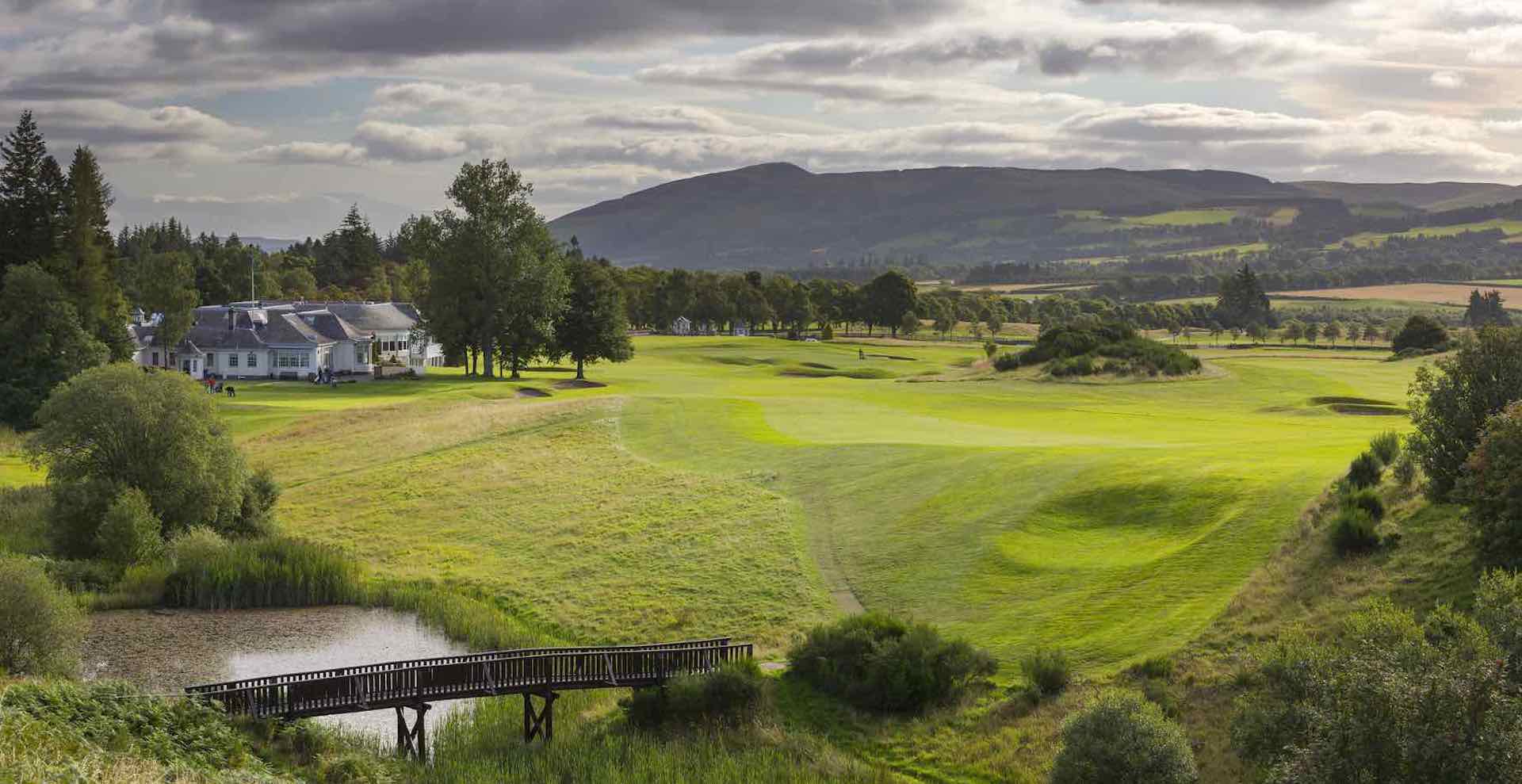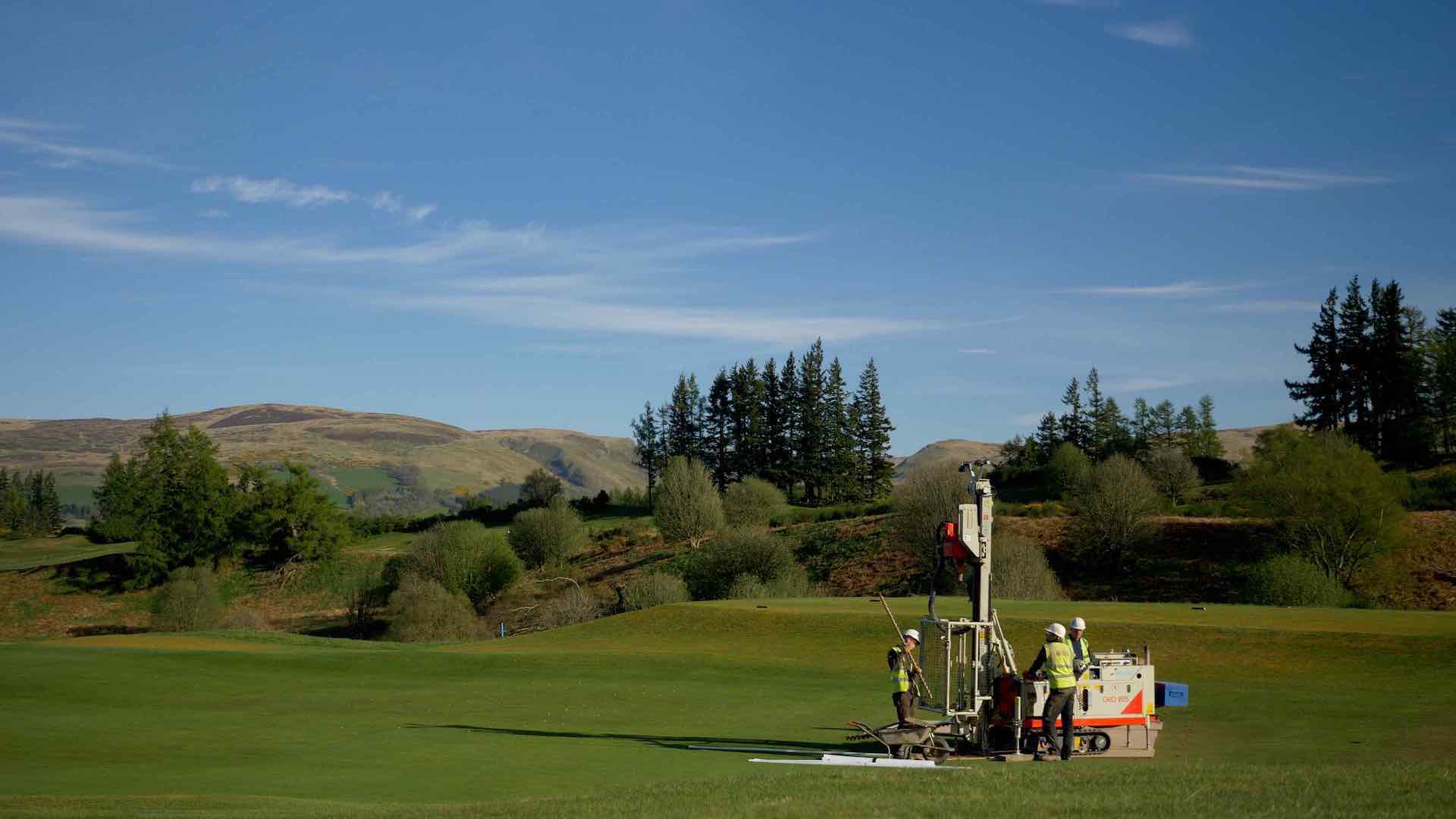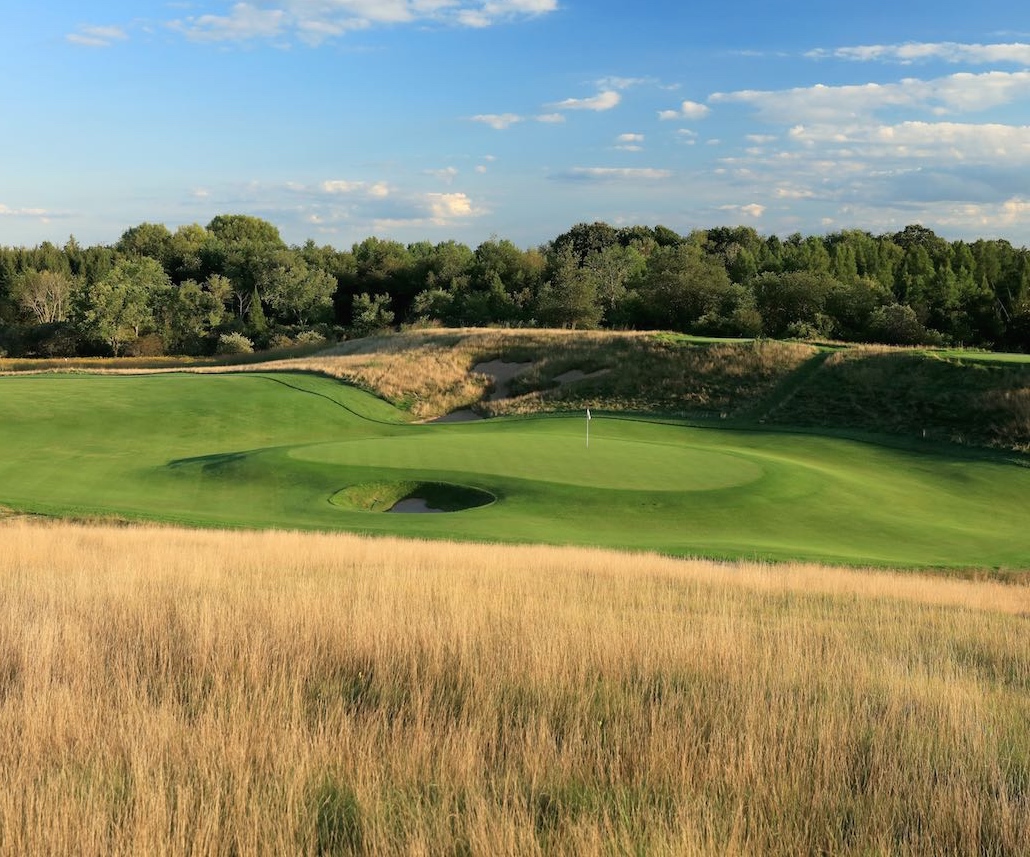News
Latest > Queen's Course renovation programme
Jun 13th, 2017
Queen's Course renovation programme
Gets to the heart of the matter
Words: GolfPunk
 Gleneagles has completed an 18–month renovation programme – including the installation of innovative drainage technology inspired by the heart’s response to atmospheric pressure – to take the iconic Queen’s Course back to its design roots.
Gleneagles has completed an 18–month renovation programme – including the installation of innovative drainage technology inspired by the heart’s response to atmospheric pressure – to take the iconic Queen’s Course back to its design roots.
The installation of the ‘Energy-–Passive Ground Water Recharge Pump’ technology on the 16th green of The Queen’s Course – which was originally designed in a natural ‘bowl’ shape by James Braid – resolves a millennium–old drainage issue by siphoning water from saturated surface areas.
Designed to further enhance playing conditions, the non–intrusive drainage technology, developed by Groundwater Dynamics, equalises moisture content throughout the depth of the bore hole and harnesses the natural contraction and expansion of the soil to return runoff water to the earth’s natural reservoir.
 The extensive restoration project, which began in 2016, has also involved the lining of 89 bunkers with a specialist Capillary Concrete system – to maintain perfect playing conditions and drainage; modify the visibility of the sand lines on each bunker; and further enhance the aesthetic appeal of each hole.
The extensive restoration project, which began in 2016, has also involved the lining of 89 bunkers with a specialist Capillary Concrete system – to maintain perfect playing conditions and drainage; modify the visibility of the sand lines on each bunker; and further enhance the aesthetic appeal of each hole.
The project has also seen the course’s fairway lines being taken back to Braid’s original designs.
Scott Fenwick, Golf Courses and Estate Manager, said: “As with the relaunch of The King’s Course last summer, our work over the last 18 months on The Queen’s Course has taken it back to how it would have been in Braid’s day.
“Braid’s bunker designs at Gleneagles were based on the courses supporting summer play only, so to bring them back to his original design concept, and make them playable all–year–round, marks a tremendous achievement.
“In the mid–1980s we began changing the identity of The Queen’s to meet golfers’ expectations at that time, which included reshaping the course until the fairways became really narrow and the original bunkers were moved into the rough.
“Using archived photographs and Braid’s designs as our guide, we’ve reversed most of those changes, increasing the fairways by around 40 per cent.
“On the 11th hole, for instance, we’ve removed one bunker and resurrected another that used to sit in the rough – bringing back into play a more strategic hazard and ultimately transforming how the course is played, giving golfers a more traditional experience.
“Additionally, around the course, we’re re–ntroducing Scottish heather to frame the fairways and better reflect the course’s appearance in the 1920s.”
Originally opened as a nine–hole course in 1919 before launching as an 18–hole course in 1925, the Queen’s Course is one of the finest par–68 courses in the UK and has played a key role in the history of Scottish golf, having hosted a multitude of legendary figures, from Seve Ballesteros and Sean Connery, to Apollo 14 astronaut Alan Shepard, the only man to have hit a golf shot on the moon.
Gary Silcock, Director of Golf, said: “Completing the project to enhance playing conditions on The Queen’s Course, marks the achievement of a hat-trick of successful renovation programmes across our three championship courses.
“Taken together, our courses offer a fascinating insight into the development of course design and by restoring The King’s, and now The Queen’s, back to James Braid’s original designs, we’re providing golfers with great choice.
“The PGA Centenary is a modern classic, with pristine, defined and immaculate contouring, where you can really fly the ball onto the green. The King’s and The Queen’s, on the other hand, are traditional heathland courses that play like ‘inland links’, where you can chip, run and manufacture shots, using the contours of the land to get the ball in the hole.
”They give our golfers the opportunity to play golf the way it was intended, but they also showcase how cutting edge drainage technology and modern greenkeeping practices are helping us deliver playability, an overall aesthetic look and a world-class experience all year round.”
The Queen’s renovation project has been completed as the 850–acre Perthshire estate, voted ‘Best Golf Resort in the World’ by readers of Ultratravel, the Telegraph’s luxury travel magazine, prepares to host two significant events over the next two years – The 2018 European Golf Team Championships and The 2019 Solheim Cup, both being held on the PGA Centenary Course.
Related:
Erin Hills course guide – back nine

